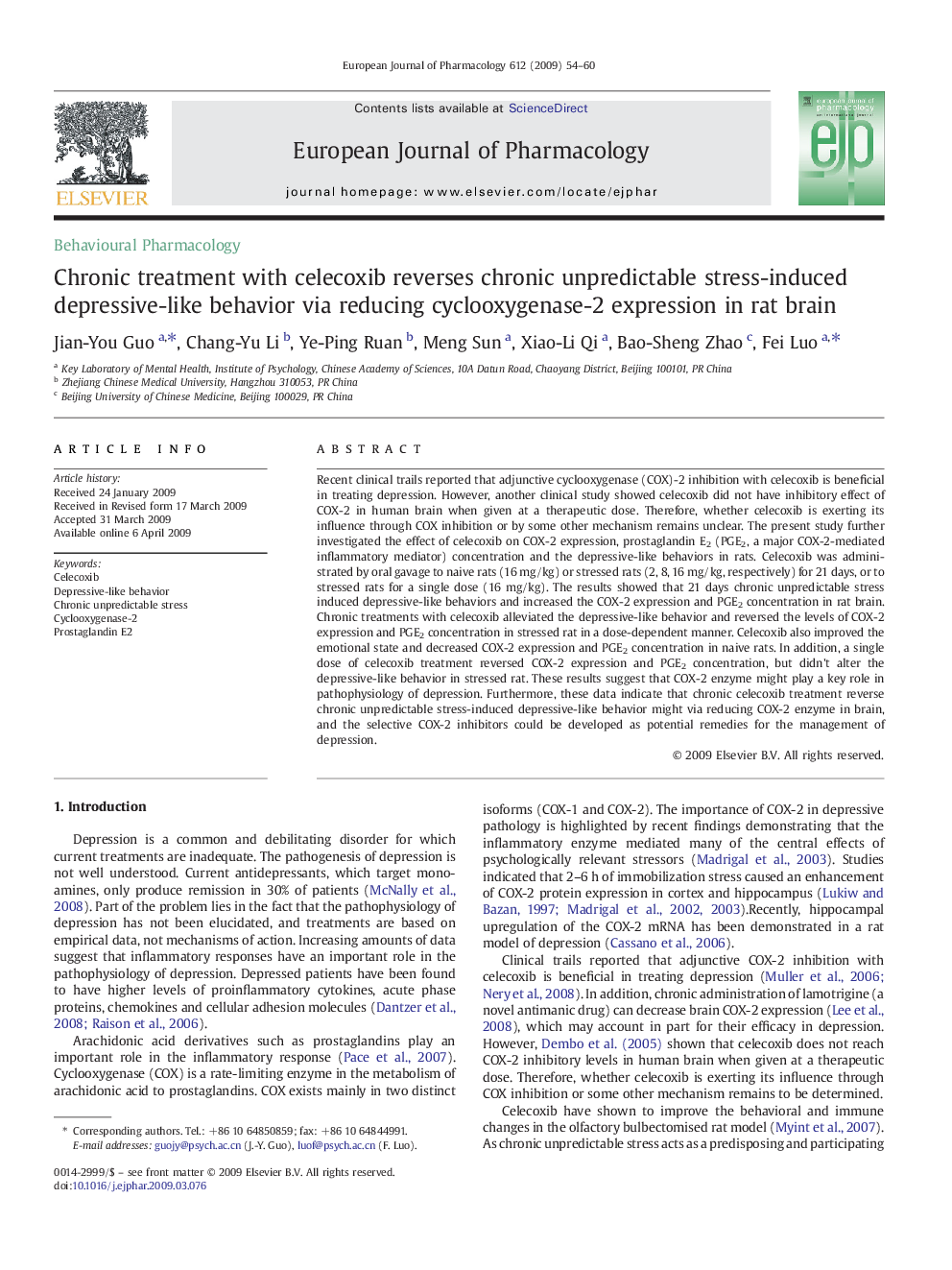| Article ID | Journal | Published Year | Pages | File Type |
|---|---|---|---|---|
| 2534250 | European Journal of Pharmacology | 2009 | 7 Pages |
Recent clinical trails reported that adjunctive cyclooxygenase (COX)-2 inhibition with celecoxib is beneficial in treating depression. However, another clinical study showed celecoxib did not have inhibitory effect of COX-2 in human brain when given at a therapeutic dose. Therefore, whether celecoxib is exerting its influence through COX inhibition or by some other mechanism remains unclear. The present study further investigated the effect of celecoxib on COX-2 expression, prostaglandin E2 (PGE2, a major COX-2-mediated inflammatory mediator) concentration and the depressive-like behaviors in rats. Celecoxib was administrated by oral gavage to naive rats (16 mg/kg) or stressed rats (2, 8, 16 mg/kg, respectively) for 21 days, or to stressed rats for a single dose (16 mg/kg). The results showed that 21 days chronic unpredictable stress induced depressive-like behaviors and increased the COX-2 expression and PGE2 concentration in rat brain. Chronic treatments with celecoxib alleviated the depressive-like behavior and reversed the levels of COX-2 expression and PGE2 concentration in stressed rat in a dose-dependent manner. Celecoxib also improved the emotional state and decreased COX-2 expression and PGE2 concentration in naive rats. In addition, a single dose of celecoxib treatment reversed COX-2 expression and PGE2 concentration, but didn't alter the depressive-like behavior in stressed rat. These results suggest that COX-2 enzyme might play a key role in pathophysiology of depression. Furthermore, these data indicate that chronic celecoxib treatment reverse chronic unpredictable stress-induced depressive-like behavior might via reducing COX-2 enzyme in brain, and the selective COX-2 inhibitors could be developed as potential remedies for the management of depression.
